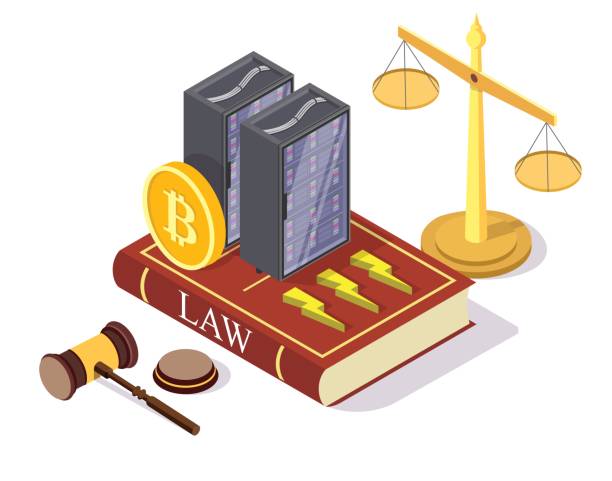Introduction: Understanding the Intersection of Blockchain and International Trade Laws
The world of international trade is evolving at a rapid pace, driven by advances in technology. One of the most significant innovations to impact global commerce is blockchain. Originally developed for cryptocurrencies, blockchain technology has shown great potential in revolutionizing the way trade laws and regulations are applied on a global scale. By offering enhanced transparency, security, and efficiency, blockchain technology is becoming an integral part of modern trade law, influencing everything from customs procedures to trade finance.
This article explores how blockchain is transforming international trade laws, highlighting its role in enhancing transparency, streamlining operations, and ensuring regulatory compliance. We will also look at the impact blockchain has on various aspects of trade, including supply chain management, legal frameworks, cross-border transactions, and the broader implications for global business regulations.

Blockchain: A Game-Changer for International Trade Regulations
Blockchain technology, a decentralized digital ledger system, offers a way to securely store and share transactional data across multiple parties. Its primary feature is its immutability, meaning that once a transaction is recorded, it cannot be altered. This makes blockchain an invaluable tool in ensuring the security and integrity of international trade processes.
The application of blockchain in international trade addresses several critical challenges such as fraud, data manipulation, and the inefficiencies caused by multiple intermediaries. With its decentralized nature, blockchain eliminates the need for a central authority to oversee transactions, making cross-border trade more efficient and cost-effective.
Transforming Trade Compliance with Blockchain
International trade laws require businesses to comply with a myriad of regulations, ranging from import/export duties to compliance with trade agreements. Traditionally, maintaining compliance has been a complex and cumbersome process, requiring extensive paperwork and interaction with government agencies. Blockchain simplifies this process by automating compliance verification and ensuring that all parties involved in a transaction have access to the same up-to-date information.
For example, blockchain can be used to create smart contracts that automatically execute and enforce the terms of a trade agreement once conditions are met. This reduces the risk of human error and fraud, as well as the time and cost associated with manual verification.
Blockchain and Supply Chain Management in Trade
Blockchain’s impact on supply chain management is particularly noteworthy. In the traditional system, tracking goods from origin to destination can be time-consuming and prone to errors. With blockchain, each step of the journey can be recorded on an immutable ledger, providing all stakeholders with real-time access to crucial information.
This increased transparency not only improves efficiency but also helps to ensure that goods meet regulatory standards. For example, blockchain can track the origin of goods to verify compliance with trade regulations, customs laws, and quality standards. This is particularly important for industries that require strict oversight, such as pharmaceuticals and food products.
Blockchain’s Role in Trade Finance
Trade finance is another area where blockchain is making significant strides. Traditionally, trade finance involves several intermediaries, such as banks and financial institutions, to facilitate payments and ensure that both parties in a trade agreement are protected. Blockchain can streamline this process by enabling peer-to-peer transactions, reducing the need for intermediaries.
Smart contracts can be used in trade finance to automate payments and ensure that the terms of a trade agreement are fulfilled before funds are released. This helps reduce the risk of fraud, enhances the speed of transactions, and lowers the overall cost of trade finance.
Blockchain for Cross-Border Payments
One of the key challenges in international trade is the complexity of cross-border payments. Transactions between parties in different countries often involve multiple currencies, banks, and payment systems, which can lead to delays and high transaction fees. Blockchain simplifies this process by enabling direct peer-to-peer payments in digital currencies or stablecoins, bypassing the traditional banking system.
This not only reduces the cost of cross-border payments but also speeds up transaction times. Blockchain also offers enhanced security, reducing the risk of fraud and ensuring that funds are transferred safely and efficiently.
Legal Implications of Blockchain in Trade Laws
As blockchain continues to gain traction in international trade, it raises important legal questions. Governments and international organizations must establish clear legal frameworks to regulate the use of blockchain technology in global commerce. This includes addressing issues related to intellectual property, jurisdiction, and dispute resolution.
Blockchain’s decentralized nature challenges traditional legal systems, which are often based on centralized authorities. As a result, there is a need for new legal approaches to govern the use of blockchain in trade, ensuring that it remains compliant with existing laws while also fostering innovation.
Blockchain and Customs Procedures
Blockchain is also transforming customs procedures, making the process of clearing goods through customs more efficient and transparent. By using blockchain to track goods as they move through customs, businesses can ensure that they are complying with customs regulations in real time. This reduces the chances of delays and ensures that customs duties and taxes are properly paid.
Additionally, blockchain can help prevent the illegal movement of goods across borders by providing a secure and transparent record of all transactions. This is particularly important in combating smuggling and other illegal activities that undermine global trade.
Future of Blockchain in International Trade
The future of blockchain in international trade laws looks promising. As more businesses and governments adopt blockchain technology, we can expect further advancements in trade compliance, supply chain management, and cross-border transactions. Blockchain’s ability to streamline processes and reduce costs will continue to drive its adoption in the global trade sector.
However, for blockchain to reach its full potential, there will need to be greater collaboration between governments, businesses, and technology providers to develop standardized protocols and legal frameworks that can govern its use. The adoption of blockchain in international trade will also require continued education and training to ensure that stakeholders understand its benefits and limitations.
Conclusion
Blockchain is undoubtedly changing the landscape of international trade laws. By offering enhanced security, transparency, and efficiency, blockchain is transforming how businesses comply with trade regulations, manage supply chains, and handle financial transactions. As the technology continues to evolve, it has the potential to redefine the way global commerce operates, making it more secure, efficient, and cost-effective.

2ag0ah
u8r7dw
h0fe1v
ccc415
Great breakdown on AI integration in gambling tech! It’s fascinating how platforms like AIGO Tools are streamlining access to solutions such as the AI Twitter Assistant, empowering innovators to stay ahead in fast-moving industries.
Your point of view caught my eye and was very interesting. Thanks. I have a question for you. https://accounts.binance.info/register?ref=IJFGOAID
ejb7t8
It’s great seeing more focus on how we play, not just what we play! A smooth mobile experience is key – frustrating interfaces kill the fun. I’ve been checking out playtime ph login and their approach to mobile optimization seems really thoughtful, prioritizing ease of use. Definitely a step forward!
Thanks for the insightful breakdown – it’s great to see how platforms like the AI Reviews Assistant help simplify the search for useful AI tools.
Your article helped me a lot, is there any more related content? Thanks!
86dgis
Great insights on strategy and gameplay-really helps players think through their moves. For those looking to apply these tactics in live settings, platforms like JLJL PH offer immersive, secure, and well-designed gaming options worth exploring.
6otyog
2hzhda
i0hf0g
It’s easy to get caught up in the excitement of slots, but responsible play is key! Seeing platforms like jlboss emphasize quick verification gives me confidence in their security-a vital step for any player, new or experienced. Fun & safety first!
Interesting analysis! Handicapping can be so nuanced. Seeing platforms like 99win app download cater to local preferences with Vietnamese flair is smart – accessibility matters! Good read overall.
Can you be more specific about the content of your article? After reading it, I still have some doubts. Hope you can help me.
It’s so important to remember gambling should be fun, not a source of stress. Seeing platforms like 33wim embrace tech for smoother, secure experiences-like quick verification-is a positive step towards responsible gaming! Let’s all play it safe.
Thanks for sharing. I read many of your blog posts, cool, your blog is very good.
mzs7ut
Thank you for your sharing. I am worried that I lack creative ideas. It is your article that makes me full of hope. Thank you. But, I have a question, can you help me?
fbmp3t
На этом этапе врач детально выясняет, как долго продолжается запой, какие симптомы наблюдаются, и имеются ли сопутствующие заболевания. Точный анализ информации помогает оперативно определить степень интоксикации и подобрать оптимальные методы детоксикации, что является ключом к предотвращению дальнейших осложнений.
Подробнее можно узнать тут – запой нарколог на дом в рязани